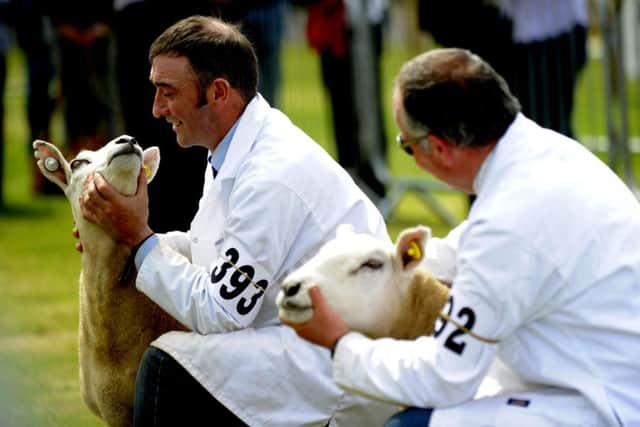Farming has key role in independence debate


Although the main head-to-head independence debates are billed to take place today, Scotland’s First Minister Alex Salmond told industry leaders that not only would the country have fared far better under the last reform of the common agriculture policy as an independent nation, but added that such a future would ensure more directed support for food, farming and rural industry.
Advertisement
Hide AdAdvertisement
Hide AdHe restated the pro-independence opinion that the country’s farmers would have been better off to the tune of €1 billion in direct support payments – and added that if a rural development programme similar to that achieved by Ireland had been negotiated, a further €2.5bn would also have come in over the 2014-20 period.
“An extra €2.5bn is a huge sum of money which would have allowed us to spend more on a range of areas.
“For example, we could have quadrupled the budget for our crucial food and drink sector, we could have trebled both vital support for new entrant farmers and our agri-environment budget to enhance Scotland’s protected sites.
“And we could have doubled the budget for those farmers to enhance support for those on the most remote areas,” said Mr Salmond.
Sharply diverging views were expressed as to how independence would affect the farming sector.
Cabinet secretary Richard Lochhead said that even with England representing Scotland’s single largest market for beef and lamb, there was little chance of a backlash to Scotland voting for independence. “Scotch beef and lamb holds its worldwide reputation based on quality and value – and this is well recognised in the English market – and I see no reason on earth why that would change,” he said.
However, Owen Paterson, the UK Secretary of State for Environment, Food and Rural Affairs, said that Scotland gained a “massive advantage” from membership of the UK on the export front.
He said that with 267 embassies and high commissions around the world, Scottish producers had a tremendous opportunity to take advantage of this unique facility in getting into existing markets and opening up new ones.
Advertisement
Hide AdAdvertisement
Hide AdScott Henderson, chair of the Scottish Beef Association, said politics had its place at the four-day show, the biggest event of its kind north of the Border, and that voters needed to hear both sides of the argument.
“It’s an issue that’s crucially important to Scotland. There’s no escape from it at the moment,” he said. “Your heart tells you one thing and your head tells you another. That’s the quandary I’m in.”
Iain Fullerton, 61, an arable farmer from Kelso, said he was unsure, but was perhaps leaning towards voting No on 18 September.
He said support seemed for staying part of the UK strengthened the closer you got to the Border.
“My farm’s right on the Border, so I do a lot of business on both sides,” he said. “I’m not against Yes, but I’m more inclined towards staying in the UK at the moment.”